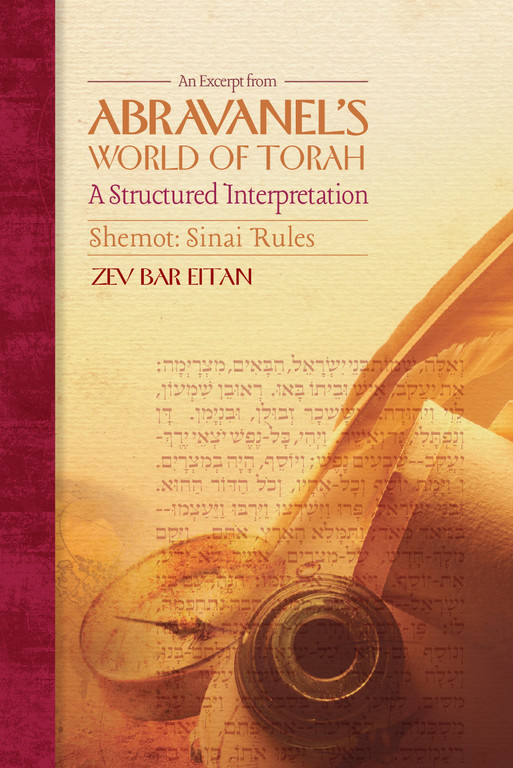Abravanel’s ‘World of Torah’ on the eve of Sinai
This past week’s Parasha, Kedoshim, contained a restatement of the essence of the Ten Commandments. This reading, coming halfway between Pesach and Shavuot, helps us better prepare ourselves for the upcoming festival, the Zman Matan Torateinu, the time of the giving of our Torah.
This week’s essay is on a booklet of 58 pages that deals with the excellent commentary on the Ten Comandments by one of the least-known of the classical commentators, Don Yitzchak Abravanel, entitled, “Abravanel’s World of Torah: A Structured Interpretation — Sinai Rules” translated by Zev Bar Eitan.
Who was Abravanel?
“Don Yitzchak Abravanel (1437-1508) was born to an illustrious and erudite family of court advisors in Portugal,” write Eitan. “A formidable scholar, he taught and surrounded himself with a cadre of dedicated students. At this same time he arose professionally through the ranks to become one of Portugal’s, and later Spain’s, key and trusted financial advisors to royalty. Personal success, comfort and security crashed abruptly when King Ferdinand and Queen Isabella unleashed the Inquisition. He was an eyewitness and experienced the expulsion of 1492. After much travail he settled in Italy where he resumed his learned writings. He passed away in Venice in 1508.”
Eitan continues:
“Abravanel penned one of the greatest commentaries on the Bible. In addition, he wrote other important works including his Pesach Haggada and Pirkei Avot commentaries and an extensive critique on the Rambam’s Guide to the Perplexed.”
“In essence, Abravanel’s writings are an educational foray par excellence into worlds of wisdom. This is, at least in part, due to the wealth of Jewish and Gentile sources he brings to bear. … When reading Abravanel in the original, one senses he has entered into the study of a true master and renowned authority.”
In my reading of this commentary on the Ten Commandments by Abravanel, in English translation, I noted the non-literal style and use of terminology that give the text a modern context, leaving the reader with the distinct impression that this is interpretive.

 50.0°,
Partly Cloudy
50.0°,
Partly Cloudy 




